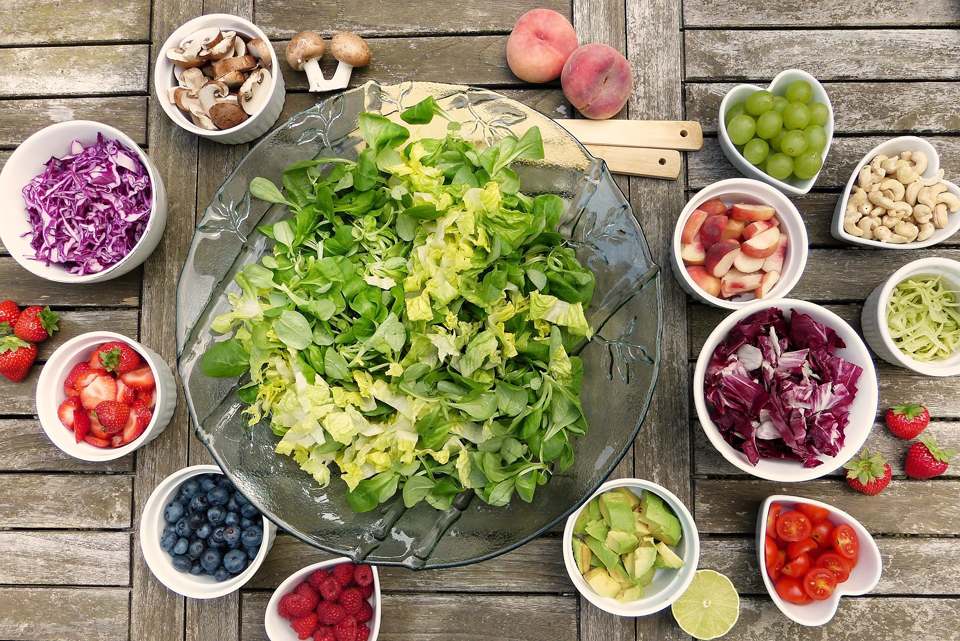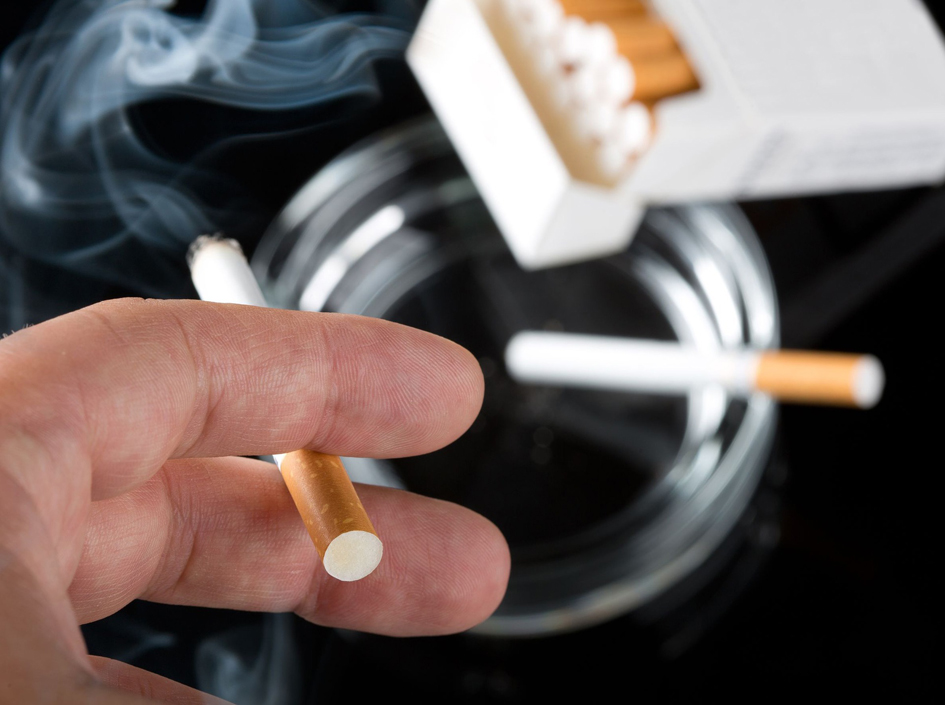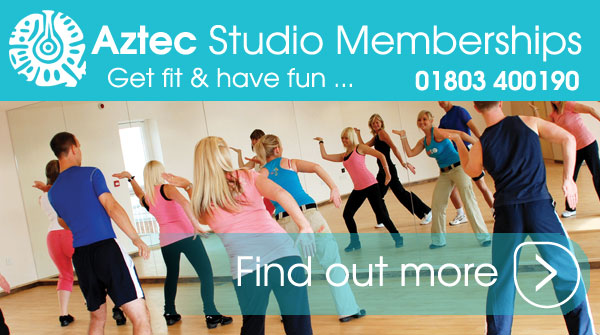So you’ve made the commitment to join a gym – great news! However the best way to maximise the benefits is to also take a close look at your eating habits.
It is a cliche, but you really are what you eat and you’re never going to lose those pounds if you’re still taking in lots of sugar, alcohol and other nasties – no matter how many miles you put in on the treadmill. Read on to discover the Aztec Club’s top nutrition tips for a healthy body.
This is not a specific diet plan, but it will help put you on the right track. Always remember, if you have any concerns about diet or exercise, do check with your GP.
Basic guide to eating well…
- Eat a balanced diet containing carbohydrates, protein, fruit and vegetables – you can find out more about this later in this post.
- Eat and drink in moderation.
- Drink water – aim for at least 2 litres a day at regular intervals.
- Eat regular meals during the day and control your portion size.
- Always have breakfast – it kick-starts your metabolism.
- Try keeping a food diary so you can check you are eating a balanced diet. A great online food tracker is www.myfitnesspal.com
- Always read the label, some foods have hidden ingredients.
- Avoid eating too many processed foods.
- Your body needs rest as well as food so aim to have a regular bedtime and aim for 7-8 hours sleep a night.

Before and after exercise…
- Never eat a big meal before exercising, have a snack an hour before.
- Drink water before, during and after exercising.
- After your workout have another snack, drink or protein shake, preferably within half an hour. This will help your muscles repair faster.
More about specific food types…
Carbohydrates
Carbohydrates are essential for energy and should be included as part of a balanced diet, but avoid quick release carbohydrates, which are usually white and heavily processed e.g. white bread, white rice, white paste, cakes and biscuits. Slow release carbohydrates are your friends! Just be wary of portion sizes. A huge bowl of wholewheat pasta smothered in a creamy sauce won’t do you any favours. Good slow release carbs include: wholewheat pasta, wholewheat couscous, brown or wholegrain rice , wholegrain oats, wholewheat breads, lentils and beans, sweet potatoes.
Fats and oils
There is an assumption that ‘fat’ is bad for you, but this is not necessarily the case. Your body requires certain fats as part of a balanced diet. These include: nuts and seeds, avocados, oily fish e.g mackerel, salmon, olive oil.
Protein
Protein is essential for the body to repair after exercising and should be included as part of a balanced diet. It also helps keep you feeling full for longer so will help avoid any sugar cravings.
Good sources of protein include: lean meats and poultry, fish, low fat natural/Greek yoghurt, eggs, nuts and seeds, beans, soy products.
Saturated Fats
These are the ‘bad’ fats which are worth avoiding. Foods high in saturated fats can raise the level of cholesterol in the blood and increase the risk of heart disease, so should be eaten infrequently. Use them as a treat and not as an everyday part of your diet. The amount of saturated fat is indicated on food labels and normally colour coded in red if it is high.
High saturated fat foods include: cakes and biscuits , desserts, fatty and processed meats, cream, cheese, pies and pasties.
Fruit and Vegetables
The daily recommendation for fruit and vegetables intake is now 7 portions a day. Varied, fresh and good quality fruit and vegetables is also important, the greener and/or darker colour the better. Steaming vegetables helps keep in vitamins and minerals.
Good examples include: green veg such broccoli, leafy kale, green beans; root veg e.g carrots, swede and parsnips; fresh salad items (remember to be careful of dressings on pre packed salads); berries and all other fruits.
Just one word of warning though – fruit does contain sugar and increasingly nutritionists are pointing at sugar as being a big problem, for our teeth and our waistlines. Although an orange will always be better than a doughnut, too much fruit will upset your blood sugar balance.
Sugars
Sadly most of us in the Western world eat far too much sugar. There are two different types of sugars, those that naturally occur in foods and those that are added e.g sugary fizzy drinks, cakes, ready meals and chocolate.
Naturally occurring sugars can be enjoyed as part of a balanced diet, however added sugars should be avoided – too many can lead to weight-gain and tooth decay. Avoid adding sugar to drinks and food, either gradually cut down or use sweeteners. If you need a sweet fix try a piece of fruit or handful of berries. Always read the food labels as you may not realise that some ready meals and cereals have added sugar.
Smoking, Caffeine and Alcohol
In an ideal world, cutting out drinking, smoking and caffeine would be the aim, however in reality they are part of many people’s lifestyle and should be managed as part of your daily diet.
Rather than go ‘cold turkey’, try cutting down first. If you currently drink alcohol 3 to 4 times a week, reduce this to 2 (always stick to the government’s recommended daily allowances). If having more than 3-4 cups of tea/coffee a day, cut down and replace with decaffeinated or herbal teas.

Stopping smoking will benefit you when exercising, again if you cannot stop then cutting down is the first step. There are some great ways to stop smoking, see the NHS website for support and further guidance.
Salt
Salt is an important part of your balanced diet and you should get enough natural salt from food without adding it to foods. Cutting down on salt will reduce your risk of high blood pressure, heart disease and strokes.
Snacks
Snacks between meals are not necessarily a bad thing. Eating regular healthy snacks will stop you being tempted to eat unhealthy food when you get hungry and will keep your blood sugar levels stable. Healthy snacks include: nuts and seeds, fruit and raw vegetables, low fat natural or Greek yoghurt, oatcakes or rice cakes with a low fat topping.
Following these guidelines will really help your energy levels and increase the benefits of any exercise programme you do. If you’d like more help and advice on training and nutrition, the Aztec Club have personal trainers on hand who can help. Find out more about joining the Aztec Club here and look out for the January new members offer, with great new benefits including 5 free weekly Aztec Studio classes.
Let us know if you have any nutrition tips to share, and for more tips and news from TLH Lesiure Resort and Aztec Leisure, subscribe to our blog.
